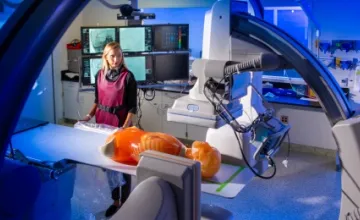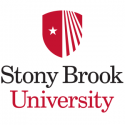New York’s leading public research universities are on the forefront of education and scientific innovation.
Only sixty-five years young, Stony Brook University is recognized as one of the nation’s top research universities, serving as a powerful engine for economic development, technological innovation and clinical care. SBU is not only transforming lives by revolutionizing cancer prognosis and advancing life-saving technologies for cardiac patients but also by offering a world-class education to students from all socio-economic backgrounds, providing them unmatched social and economic mobility.
The University at Buffalo was recognized as a research powerhouse back in 1989, when it became the first public university in New York invited to join the AAU, and its impact has only grown over the years. From developing new ways to treat memory loss in Alzheimer’s to pioneering minimally invasive surgical techniques, UB is making discoveries that lead to longer, healthier lives.
Learn more about the amazing work happening every day at New York's flagship public research universities:




New, non-opioid molecule acts like a long-lasting anesthetic, relieving chronic pain for three weeks
BUFFALO, N.Y. – A new molecule developed by University at Buffalo researchers acts like a local, long-lasting anesthetic, providing robust pain relief for up to three weeks, according to the results of preclinical studies reported recently in the journal Pain.
A compound originally developed at SBU now in clinical development
A non-opioid investigational drug with promising pre-clinical results in treating neuropathic pain has passed an important hurdle after the study’s safety review committee (SRC) reviewed the data from in

